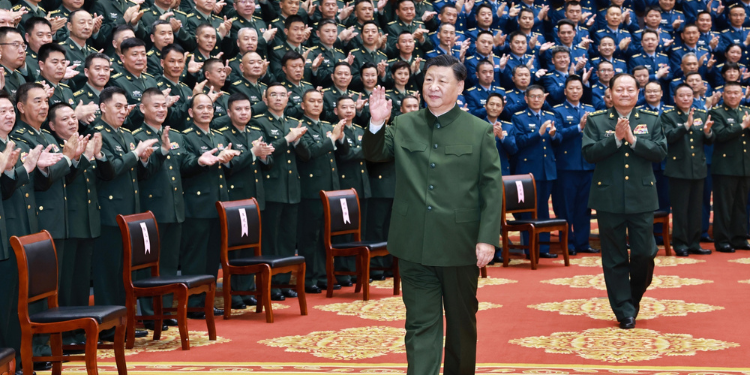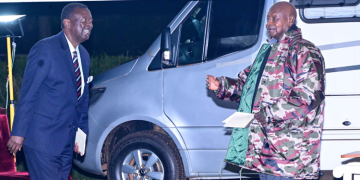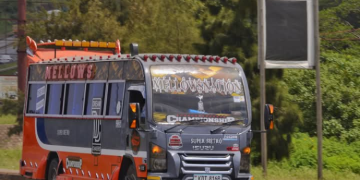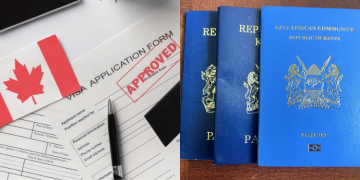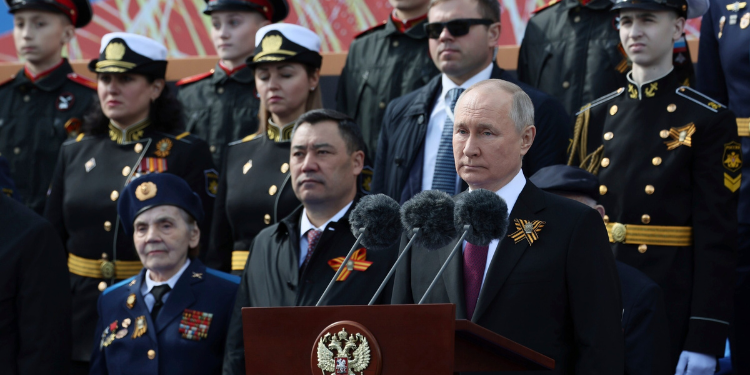China has quietly imposed restrictions on the export of high-precision machine tools to Putin’s Russia, equipment critical for the production of advanced weaponry.
The tools, essential for producing missiles, drones, and radar systems, are now subject to strict export licensing under China’s updated control regime.
New Sanctions
Tatpromstan, a Russian firm specializing in integrating Chinese machine tools, is among the first casualties.
Speaking at the TEMP Forum on metalworking and additive technologies, Ildar Nuriyev, CEO of Tatpromstan, confirmed that no more high-precision machine tools will be exported from China under the new rules.
“China has restricted the supply of high-tech equipment, although this is rarely mentioned.”
Ildar said the new rules signal China’s unwillingness to develop partnerships with Russian companies.
“While it used to be possible to obtain machine tools with an accuracy of 3–4 microns, it’s no longer possible. A special export license is now required.”
China’s Ministry of Commerce updated its Catalogue of Technologies Prohibited and Restricted from Export in late 2023.
High-precision tools now require special licenses, especially those with dual-use potential.
These restrictions fall under China’s Export Control Law, which allows Beijing to block items that could be used in the production of weapons.
Blow to Putin
The export freeze hits Russia’s military-industrial complex at a critical time.
CNC machines and other precision tools are vital for manufacturing components in advanced weapons systems, including hypersonic missiles, UAVs, and air defence systems like the S-400.
Without them, Russia’s ability to sustain its war effort in Ukraine could be severely compromised.
Western sanctions have already blocked access to European and American suppliers, with China filling the gap, until now.
Nuriyev noted that even the export of already purchased machines from China is now fraught with “unpleasant incidents,” hinting at customs delays and bureaucratic hurdles.
“This shows China’s unwillingness to develop partnerships with Russian companies.”
The “No Limits” Partnership
Despite public declarations of a “no limits” partnership, China’s export restrictions reveal a change in its relationship with Russia.
The quiet halt in high-precision machine tool exports, without formal sanctions or public announcements, amounts to silent sanctions, a strategic form of pressure that avoids direct confrontation.
While maintaining diplomatic ties, China is reducing its exposure to secondary sanctions and reputational risk.
The export licensing regime, now applied to dual-use technologies, enables China to control the flow of sensitive equipment without overtly breaching its ties with Russia.
Trade Data Confirms Cooling
Official customs data shows a sharp decline in China–Russia trade, supporting signs of a strategic slowdown.
In August, Chinese exports to Russia dropped by 16.4% year-on-year, doubling the decline recorded in July, with imports from Russia falling by 17.8% in the same period.
Total bilateral trade for August stood at $17.9 billion (Ksh 2.33 trillion), a significant decrease from previous months.
From January to August, overall trade between the two countries decreased by 9.4%, totaling $143.8 billion (Ksh18.7 trillion), compared to $244.8 billion (Ksh31.8 trillion) in 2024.
The downturn spans multiple sectors. Chinese imports of Russian oil, coal, and liquefied natural gas have also declined, indicating a broader economic disengagement from Russia.
Also Read: Russia Caught Flat-Footed as Ukraine’s 59th Brigade Shoots Down Mi-8 Helicopter
The data suggests that China is quietly scaling back its economic exposure to Russia, aligning with its cautious geopolitical posture amid rising global scrutiny.
The Way Forward for Russia
Putin must now weigh a mix of short-term workarounds and long-term structural shifts.
Russia may intensify cooperation with countries like Iran, North Korea, and Myanmar, which have already supplied drones, ammunition, and basic military hardware.
However, these partners lack the industrial base to replace China’s high-precision tools or advanced electronics.
Putin has long promoted import substitution, but its domestic machine tool industry remains underdeveloped.
Also Read: Bold Zelensky Immediately Retaliates, Blows Up Putin’s Drone Factory
Scaling up production of high-precision equipment would require significant investment, skilled labor, and access to foreign components, many of which are currently restricted.
In the tech domain, Russia could invest more heavily in cyber capabilities, AI, and software-based solutions to compensate for hardware shortages.
However, these are not substitutes for the physical infrastructure needed to produce advanced weaponry.
Follow our WhatsApp Channel and X Account for real-time news updates.
